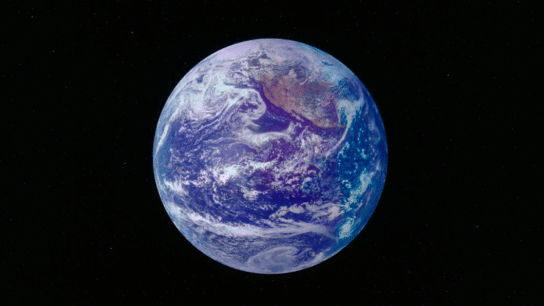The Earth’s average temperature is around 15 degrees Celsius. There are natural fluctuations in the global climate- with temperatures in the past being much lower and higher at various times- but scientists say that temperatures are now rising faster than at any other time in history. This is climate change, and it’s impacting our planet in ways that we do not understand the full scope of.
—
One of the driving factors of this is the greenhouse effect, a term used to describe how the Earth’s atmosphere traps some of the Sun’s energy. Greenhouse gases trap some of the solar energy radiating back to space from the surface of the Earth, causing the planet to heat up. This isn’t all bad, as without the greenhouse effect, the planet would be about 30 degrees colder and very hostile to life.
The problem is that we are adding to this natural greenhouse effect because gases released from industry and agriculture are trapping more heat and increasing the temperature.
The 20 warmest years on record have all occurred in the past 22 years, with 2015-2018 making up the top four.
This is called climate change. Some people choose to call it the “climate crisis” because it communicates a more urgent situation.
What are Greenhouse Gases?
Despite what many may think, the greenhouse gas with the greatest impact on global warming is water vapour, however it remains in the atmosphere for only a few days.
Carbon dioxide remains in the atmosphere for much longer. To return to pre-industrial levels would take hundreds of years. Natural carbon sinks like oceans absorb some of this, but they are slowly becoming saturated with carbon, meaning that they will soon start emitting more carbon than they absorb. The concentration of carbon in the atmosphere is higher than at any time in at least 800 000 years and the world is about one degree Celsius warmer than before industrialisation.
Most man-made emissions of carbon dioxide come from burning fossil fuels.
Other greenhouse gases such as methane and nitrous oxide are also released by human activities, but they are less abundant than carbon dioxide. However, as permafrost in the polar regions starts to melt, it will release a vast amount of methane, which is more potent than carbon dioxide.
How Much Will Temperatures Rise?
The World Meteorological Organization says that if the current warming trend continues, temperatures could rise 3-5 degrees Celsius by the end of this century, but an Intergovernmental Panel on Climate Change (IPCC) report in 2018 says that we need to keep this to 1.5 degrees to avoid “rapid, far-reaching and unprecedented changes in all aspects of society.”
However, even if we fully stopped greenhouse gas emissions in 2020, warming could only be somewhat halted from 2033; large bodies of water and ice can take hundreds of years to respond to changes in temperature and it takes decades for CO2 to be removed from the atmosphere.
How Does Climate Change Affect the Ocean?
Because the oceans absorb much of the atmospheric carbon dioxide, water temperatures also increase. As it heats up, it increases in volume, adding to sea level rise. Across the globe, the average sea level increased by 3.6mm per year between 2005 and 2015.
An increase in atmospheric carbon dioxide will also make the oceans more acidic, which will make it very difficult for coral reefs and other marine life to survive. It will also increase the presence of “dead zones” around the world- bodies of water that have no oxygen content and cannot support life.
However, it is thought that the main reason for rising sea levels is melting ice. Most glaciers around the world are retreating. There has been a dramatic decline in Arctic sea ice since 1979 and the Greenland ice sheet has experienced record melting in recent years, with 2019 seeing the sheet lose 1 million tons of ice per minute. If the entire Greenland ice sheet melts, sea level would rise by six metres.
How Will We Be Affected by Climate Change?
Climate change manifests itself in many ways. It will cause water shortages in already-vulnerable areas, like many countries in Africa, India and Asia, but that’s not to say it won’t affect the Global North either. It will affect our food supply and security and increase the deaths from extreme weather events like floods, storms and heatwaves.
More areas will experience more intense rainfall because there will be more moisture in the air. However, the risk of drought in some areas will increase. Poorer countries will suffer the most from climate change as illnesses like malaria, water-borne diseases and malnutrition will also increase.
Hundreds, if not thousands, of plant and animal species are predicted to go extinct as habitats change faster than they are able to adapt to. This includes earlier flowering and fruiting time for plants.
Responding to climate change will be one of the biggest challenges we face this century and it requires an aggressive, coordinated response from all the governments of the world.

















